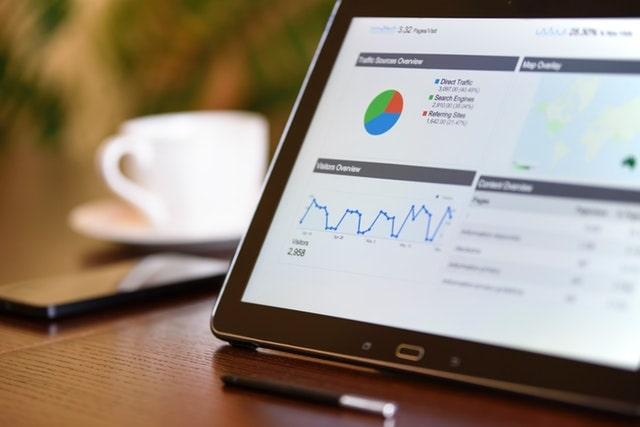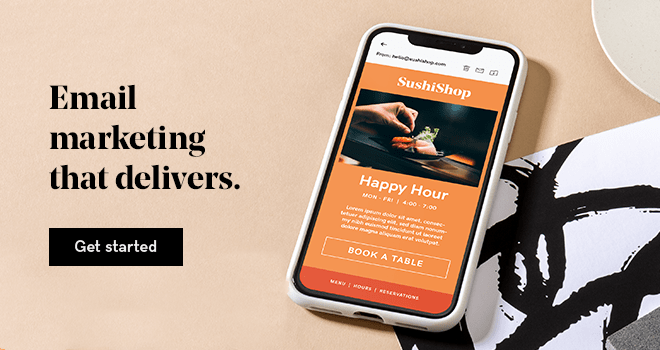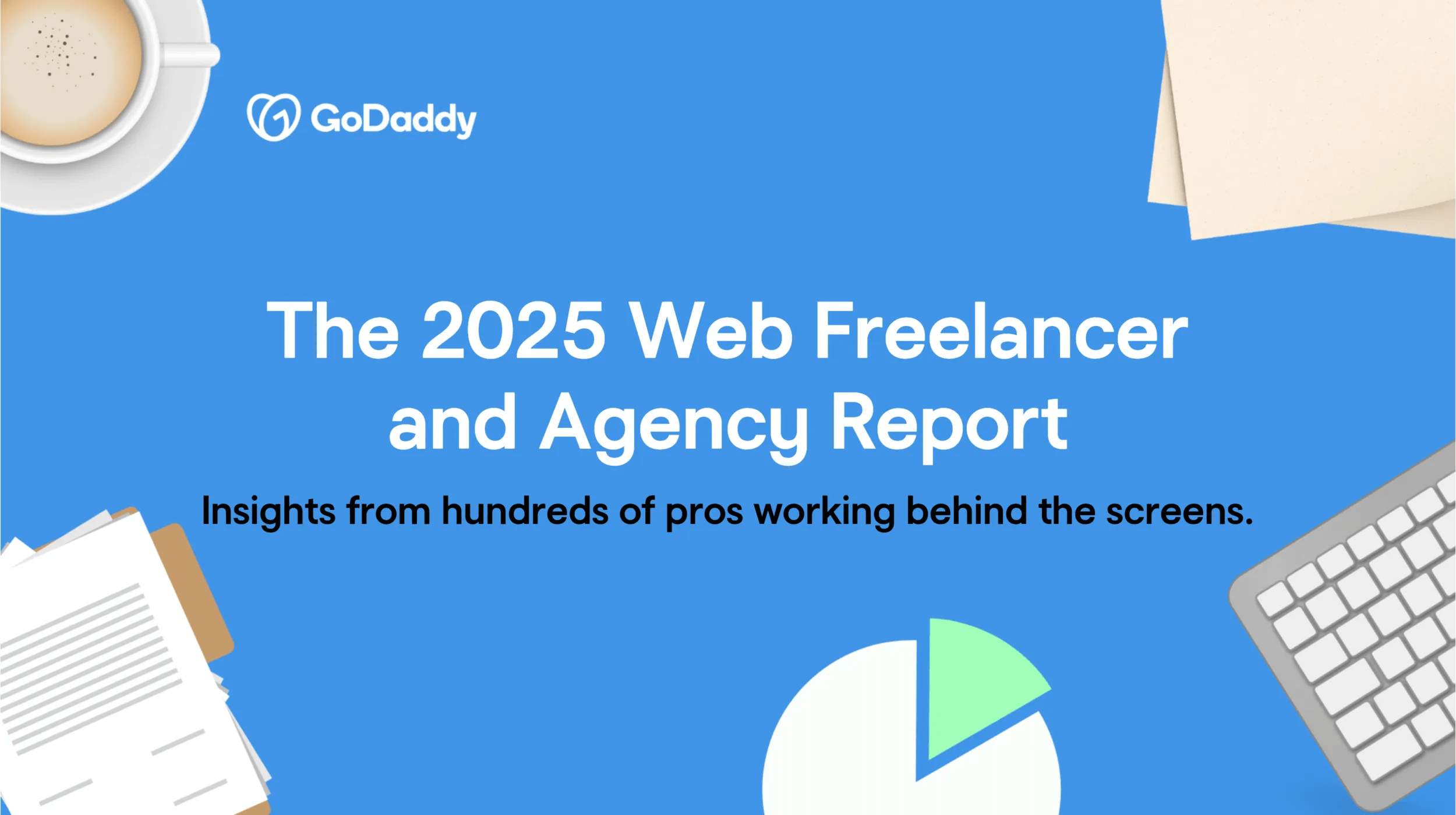No one wants to spend hours crafting the perfect email that people don’t even open, let alone read. So marketers and business owners must work to increase email open rates for their marketing campaigns and newsletters.
You need to use every tool and tactic available to get people to engage with your emails.
When people don’t open your email, they don’t read your email. And that means they didn’t see your brand messaging, engage with your offers and content or convert into active customers.
How to increase email open rates
Use this guide to get tips and insights to increase email open rates for your newsletters and single email campaigns. It covers:
- What is the email open rate?
- What is the email click-through rate?
- 7 ways to increase email open rates.
- A cheat sheet for writing better subject lines
- Conclusion and next steps.
Learn how to start engaging your audience and growing your business by writing emails that customers open, read and click.
What is an email open rate?
Before we look at ways to increase email open rates, let’s talk about what email marketing open rates are.
An email open rate is the percentage of people who receive your email in their inbox and open it.
Open Rate = Emails Opened / Emails Sent
If 1,000 emails are sent and 250 are opened the open rate is 25% (25% = 250 / 1,000).
To get a more accurate number for your open rate, you’ll need to also factor in bounced emails.
Bounced emails are emails you send but for a variety of reasons are not delivered to the recipient. Subtract the number of bounced emails from the number of emails sent to get a more accurate number.
Open Rate = Emails Opened / (Emails Sent - Bounced Emails)
If 1,000 emails are sent, 100 bounced, and 250 are opened -- the open rate is 27.5% (27.7% = 250 / (1,000 - 100)).
In your formula, you might also want to consider auto-opened emails, which are emails that appear to be opened by a user when they are actually opened by a software (such as security scan).
This is more difficult to track as many email marketing tools don’t monitor this yet. But, it’s something to be aware of as you dive deep into your email open rates.

Once you know how to accurately monitor your email open rate, you can collect data that shows:
- How engaged your subscribers are
- When is the best time to send emails
- How often you should send emails
- How your business compares with others in your industry
While average email marketing open rates vary by industry, data shows an average open rate across all industries at 24%. As you set goals for email open rates, keep this number in mind but also look at trends in your industry to determine your benchmarks.
Related: Email automation 101 — 5 steps to automate email marketing
What is the email click-through rate?
When talking about email open rates, it’s also important to think about email click-through rates (CTR). The email click-through rate is the percentage of people who receive your email and click on a link in the email.
Click-Through Rate = Emails with a Click / Emails Sent
If 1,000 emails are sent and 50 emails had a user click on a link in it -- the click-through rate is 5% (5% = 50 / 1,000).
For a more accurate number, also factor in the number of bounced emails.
Click-Through Rate = Emails with a Click / (Emails Sent - Bounced Emails)
If 1,000 emails are sent, 100 bounced, and 50 led to a click the open rate is 5.5% (5.5% = 50 / (1,000 - 100)).
Knowing and monitoring your email click-through rate helps you see:
- How engaged your subscribers are
- Which marketing tactics and messaging works best for your brand
- How your business compares with others in your industry
Like open rates, click-through-rates vary by industry. Data shows an average CTR across all industries of 7.43%. Use the average rate for your industry to set benchmarks for this metric as well.
7 ways to increase email open rates
Now that you know what email open rates are, how to calculate them and why they are important, let’s look at some tips for increasing email marketing open rates.
- Build a strategy around your subject lines.
- Consider other email elements visible in the inbox.
- Strategize your email marketing frequency.
- Cultivate an engaged email list.
- Create engaging email content.
- Boost your email click-through rate.
- Track, analyze and adjust.
Let’s get started.
1. Build a strategy around your subject lines
Having a great subject line is essential for improving email marketing open rates. Unfortunately, there’s no “great subject line formula” to ensure your subject line rocks.
Instead, think about writing a subject line that tells your story. It should be appropriate to your business and your style — and more importantly, it should speak to your audience.
Consider the following about your audience:
- Who are they?
- What are they expecting from you?
- What’s in it for them?
- What words or phrases are likely to grab their attention?
- What questions might you be able to answer for them?
Your subject line doesn’t have to be super witty. Clarity works just fine. Just be sure to tell your story. And, remember to spend time on your subject line. Don’t rush it, and develop three to five options before choosing the best.
We’ll dive into more specific tips on crafting smart subject lines later in this post.
Related: Beginner’s email marketing guide for small businesses
2. Consider other email elements visible in the inbox

While the subject line is the most noticeable element of a new email in your inbox, it’s not the only piece of information you can see.
Email inboxes usually also show the email address of the sender and a preheader. A preheader is a string of words that comes after the subject line. It appears when there is extra room after the primary subject line.
Beyond those recommendations, there are a few other helpful tips for essential email elements.
Don’t use a “no-reply” email address
This makes the email feel less personal and important. Plus, it’s slightly off-putting as it implies the company can email the recipient, but the recipient can’t respond back.
Remove HTML or miscellaneous text from the preheader
A graphic or link at the beginning of your email can fill preheader text with lines of code or other messy text. Test your email on desktop and mobile to make sure the preheader uses clear text.
Optimize your preheader
Even better, optimize your preheader using subject line best practices to make your email stand out even more.
3. Strategize your email marketing frequency
How often you send your email could be just as important as what’s included in the email when it comes to open and click-through rates.
Monthly newsletters get higher CTRs than daily newsletters, but it’s important to consider your big-picture goal. Do you want to maximize your open rate per email? Or per month?
Sending more frequently might get you more cumulative clicks per month even though the per-email CTR is a bit lower.
Finding the right frequency will require some experimentation. Let your email newsletter statistics guide the way.
4. Cultivate an engaged email list
You’re more likely to score high open and click-through rates with an engaged email list. Contacts who were added more recently are often more engaged.
Continue to build a list of recent contacts who bought something from you or asked to be kept in the loop about your business or organization. A smaller, ready-to-listen readership is always preferable to a bloated email list.
5. Create engaging email content
If you want more people to open your email, give them something to look forward to. Create an email newsletter that they can’t wait to receive.
Adding engaging content to your email not only boosts click-through rates, but it also leaves readers wanting more. When readers want more from your brand, they will be more likely to look for and open your emails. To create more engaging emails:
Segment your list
Create customer segments in your list based on what customers are interested in and/or how they have engaged with your brand.
Ask your audience to segment themselves
If you aren’t sure what your audience cares about most, ask them. Use what you find out to create segments.
Send targeted emails
Create targeted email campaigns that only send emails to recipients that will be most interested in your content.

6. Boost your email click-through rate
Successful email marketing requires healthy email open rates as well as click-through rates. So also focus on creating email content that drives users to click.
Leave something to be desired.
Email newsletters with high click-through rates don’t give away the farm. Write short, simple newsletters that chauffeur people to valuable content on your website, blog or eCommerce store. Give them an incentive to click through. Possible incentives include:
- Full news elsewhere. Many successful email newsletters are very short emails announcing that the full news, results, catalog, or chart is now available.
- Limited-time offer. If you want people to take action, give them a deadline.
- Contest results. If you run a contest, post the results wherever you want your contacts to flock—possibly to a sale item or a juicy piece of information on your website. Then, send an email newsletter that gets contest participants to click through.
Also, consider placing the most important information at the top of your email. More often than not, the lead-in content gets the most attention.
As you compose an email newsletter, consider your primary goal: What do you want your audience to do? Then place your call-to-action at the top.
You should also use video in your emails to spark engagement. While universal shortcodes for embedding videos in an email don’t work yet, you can add a .jpg image of the video linked to the URL of the hosted video.
Adding videos in this way can make your content very clickable. It’s an alternative to standard, static images, and it’s something that drives readers to want to click to view more.
7. Track, analyze and adjust
You can’t increase email open rates if you aren’t tracking your results. If you don’t know what you’ve done in the past, you can’t compare your current results or adjust for the future.
Set up a system to track open and click-through rates on all of the emails that you send, and regularly return to these numbers.
Look for patterns of what worked and what didn’t, and use what you learn to shape future email marketing campaigns.
A cheat sheet for better subject lines
Earlier in this post, we talked about the importance of subject lines for increasing email open rates. Subject lines are often the primary factor that determines whether or not someone opens your email.
So, let’s dive a little deeper into best practices and tips that can help your email subject lines stand out.
Utilize personalization
Grab attention in the sea of other subject lines by adding the recipient's name to the subject line. Also, use personalization to call out the recipient's city or industry, a product they recently bought, or some other detail about them.
Related: How to use personalization to increase sales
Drive FOMO
Play into the FOMO or the fear-of-missing-out to encourage readers to open your email.
Use your subject line to make readers feel like they will lose something by not opening. Show time-sensitive offers in the subject line, and let readers know what they will miss by not acting quickly.
Pique curiosity
Tease readers by giving them half of a story, offer, or idea. Leave them wanting more to drive them to open the full email. Imply that there is a secret waiting. Use a half-sentence as your subject line, and add an ellipse and cut off the sentence.
Use formatting that draws in the eye

A study by Worldata found that email formatting worked well when it:
- Uses all capital casing (“10 Ways To Save at Kate’s Couture This Week” instead of “10 ways to save at Kate’s Couture this week”)
- Starts with a number
- Includes brackets or parentheses
Use words that grab attention
Worldata also scanned thousands of emails and found that the most successful emails often include the following words in their subject lines.
- Invitation
- Secret
- Reserved
- Wow/Whoa
- Miss You
- Free
- Limited
- Exclusive
- Tomorrow
- Today
- Last Chance
- Expires
- Days Left
- Don’t Miss
- For You
It’s worth noting that at one time, email filters were very sensitive to words or phrases that they found to be spammy.
For example, marketers were afraid to use the word “free” because they believed it would trigger spam filters. But, email filters are more sophisticated now, and they don’t often trigger spam warnings by single words.
It’s also worth noting that like most digital marketing tactics, nothing stays the same forever.
Always be testing different words and subject lines to see what works for your brand and how results change over time.
Drive higher email marketing open rates
Now you can stop wasting time crafting perfectly written and designed emails that no one opens, much less reads. Use the tips and strategies in this post to increase email open rates and start better engaging your audience and selling to your customers.
If you need help getting your email marketing strategy up and running and start tracking open and click-through rates, check out GoDaddy Email Marketing.
With GoDaddy Email Marketing, you can see how your email campaigns are performing, as well as create your content with a variety of templates, manage your contacts, and even create sign-up forms for your list. Learn more about GoDaddy Email Marketing today.
This article includes content originally published on the GoDaddy blog by the following authors: Emma Wilhelm, Erez Zukerman and Kate Chittenden.








